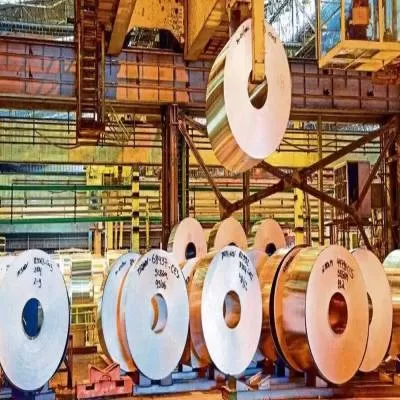

The implementation of the Carbon Border Adjustment Mechanism (CBAM) by the European Union, aimed at taxing carbon emissions in imports, is anticipated to have a limited impact on India's primary aluminium producers, as per a report by credit rating agency ICRA.
CBAM, adopted by the EU in May 2023 to combat climate change, will levy taxes on imports from six sectors, including aluminium. However, the regulation focusing solely on direct emissions from the production process, starting January 1, 2026, is expected to minimize its effect on Indian exports to the EU, excluding indirect emissions that constitute a significant portion of total emissions from primary aluminium production.
Jayanta Roy, Senior Vice-President and Group Head, Corporate Sector Ratings, ICRA, highlighted that India exported around 0.7 million metric tonnes (24% of total export) of primary aluminium to European countries in FY2023. Roy projected taxes from CBAM to range from US$ 50-140 per metric ton between calendar years 2026 to 2034, representing approximately 2-6% of current aluminium prices. However, he cautioned that including indirect emissions in the future could significantly impact prices, given India's reliance on coal-fired power plants.
Despite the transition from the EU Emission Trading System (EU-ETS) to CBAM over eight years, Roy noted the limited financial impact, thanks to the minor share of direct emissions in total emissions. However, he emphasized India's commitment to reducing carbon footprint, aiming for net zero status by 2050. Roy highlighted the domestic aluminium sector's higher carbon intensity compared to the global average and advocated for transitioning to low-carbon technologies and renewable power.
Roy concluded that while transitioning might require significant capital investments, entities could opt for power purchase agreements as a cost-effective strategy to secure renewable energy.
As the EU takes steps to combat climate change, the impact of CBAM on global trade dynamics, particularly in carbon-intensive industries like aluminium, remains a subject of close scrutiny.